Home>Home Maintenance>What Kind Of State License Do You Need To Do Home Repairs


Home Maintenance
What Kind Of State License Do You Need To Do Home Repairs
Modified: August 27, 2024
Discover what kind of state license you need to take on home repairs and renovations. Get the necessary qualifications for a successful career in home maintenance.
(Many of the links in this article redirect to a specific reviewed product. Your purchase of these products through affiliate links helps to generate commission for Storables.com, at no extra cost. Learn more)
Introduction
Welcome to the world of home repairs! Whether you are a homeowner looking to spruce up your dwelling or a professional looking to kickstart a career in the home maintenance industry, it is important to understand the legal requirements for performing home repairs. One crucial aspect of this is obtaining the necessary state license.
A state license is a certification issued by the government that allows individuals or businesses to perform specific types of home repairs within a given jurisdiction. The requirements for obtaining a license can vary from state to state, and even different aspects of home repairs may have different licensing requirements.
In this article, we will explore the different types of state licenses required for various home repair professions. By understanding these licensing requirements, you will be better equipped to start your own business or make informed decisions when hiring professionals for your home repair needs.
It is worth noting that every state has its own regulations and licensing boards that oversee home repairs. Therefore, it is crucial to research the specific licensing requirements in your state to comply with the law and offer the highest quality service to your clients.
Now, let’s dive into the world of home repair licenses and explore the different requirements for various professions in this vast industry.
Key Takeaways:
- Ensure you understand your state’s licensing requirements for home repair professions to legally operate and provide high-quality service to clients. Research, comply, and thrive in the industry!
- Whether you’re a homeowner or a professional, obtaining the necessary state license for home repairs demonstrates expertise, professionalism, and commitment to delivering top-notch work. Compliance is key to success!
Determining the Need for a State License
Before delving into the specific licensing requirements for different home repair professions, it is important to understand whether or not you actually need a state license. While some states have strict regulations and licensing requirements for all home repair professionals, others may have more lenient rules or exemptions.
To determine if a state license is necessary, you should consider the type of work you plan to do and the scope of your operations. In many cases, basic repair and maintenance tasks like painting walls, fixing minor plumbing issues, or installing light fixtures may not require a state license.
However, if your work involves more complex tasks that fall under specialized trades like electrical, plumbing, or HVAC systems, there is a high likelihood that you will need a state license. Working on these systems without the proper license not only puts you at risk of legal consequences but also poses potential risks to the safety and well-being of your clients.
Additionally, it is important to note that some states may have specific monetary thresholds that determine whether a license is required. For example, if you are planning to perform home repairs that exceed a certain dollar amount, you may need to obtain a state license to legally operate.
Ultimately, it is crucial to thoroughly research the licensing requirements in your state and consult with the appropriate licensing board or regulatory agency to determine whether or not you need a state license for your specific home repair activities.
Next, let’s take a closer look at the various types of state licenses required for different professions within the home repair industry.
Home Repair Licenses by State
The requirements for home repair licenses can vary significantly from state to state. It is essential to familiarize yourself with the specific licensing regulations in your state to ensure compliance with the law. Here is a general overview of the different types of licenses required for various home repair professions:
General Contractors: General contractors are responsible for overseeing and coordinating construction projects. Most states require general contractors to obtain a license, which typically involves passing a licensing exam and demonstrating a certain level of experience and knowledge in the field.
Electricians: Electricians are responsible for installing, maintaining, and repairing electrical systems. Many states require electricians to obtain a license, which often involves completing an apprenticeship, passing a licensing exam, and fulfilling specific educational and experience requirements.
Plumbers: Plumbers specialize in installing and repairing plumbing systems. Most states require plumbers to obtain a license, which usually involves completing an apprenticeship, passing a licensing exam, and meeting specific training and experience requirements.
HVAC Technicians: HVAC (Heating, Ventilation, and Air Conditioning) technicians are responsible for installing, maintaining, and repairing heating and cooling systems. Licensing requirements for HVAC technicians can vary by state, but many states require a license, which may involve passing a licensing exam and completing a specific training program.
Roofers: Roofers specialize in installing and repairing roofs. While some states do not require a specific license for roofers, others may have regulations in place. It is important to check with the licensing board in your state to determine the requirements for operating as a roofer.
Flooring Installers: Flooring installers are responsible for installing and repairing various types of flooring materials. Licensing requirements for flooring installers can vary by state, with some states requiring a license while others do not. Research the regulations in your state to understand the specific requirements.
Painters: Painters are responsible for applying paint to surfaces. Licensing requirements for painters can vary by state, with some states requiring a license for commercial projects or specific types of work. Check your state’s regulations to determine if a license is required.
Landscapers: Landscapers design, install, and maintain outdoor landscapes. While some states may not require a license for basic landscaping services, other states may have specific licensing requirements for more complex projects or the use of pesticides or fertilizers.
Handyman Services: Handyman services typically involve performing a variety of minor home repairs. The licensing requirements for handyman services can vary by state, with some states having specific limitations on the type of work that can be performed without a license. It is important to understand the regulations in your state to ensure compliance.
Remember that this is just a general overview, and the specific licensing requirements can vary significantly by state. Conduct thorough research and consult with the appropriate licensing board or regulatory agency in your state to ensure you meet all the necessary requirements to legally operate in the home repair industry.
Now that we have explored the different types of licenses required for various home repair professions, let’s delve into the specific licensing requirements for each profession.
Licensing Requirements for General Contractors
General contractors play a crucial role in overseeing and managing construction projects. To ensure the quality and safety of construction work, many states have specific licensing requirements for general contractors. Here are some common licensing requirements for general contractors:
Educational Requirements: While some states may not have specific educational requirements, others may require general contractors to have a certain level of education, such as a high school diploma or equivalent.
Experience: Many states require general contractors to have a certain amount of hands-on experience in the construction industry. This can typically range from a few years to a decade, depending on the state and the level of complexity of the projects the contractor intends to undertake.
Licensing Exam: Most states require general contractors to pass a licensing exam. The exam assesses the contractor’s knowledge of construction practices, building codes, safety regulations, and other related topics. It is important to prepare for the exam by studying relevant materials and taking practice tests to ensure success.
Insurance and Bonding: General contractors are often required to have adequate liability insurance and may need to provide proof of bonding. This helps protect both the contractor and the client in case of accidents, property damage, or incomplete work.
Financial Requirements: Some states require general contractors to demonstrate financial stability, such as providing proof of a certain level of financial resources or maintaining a minimum net worth. This requirement aims to ensure that contractors have the means to complete projects and fulfill their financial obligations.
Licensing Fees: To obtain a general contractor license, applicants are typically required to pay licensing fees. The fees can vary depending on the state and may need to be renewed periodically to maintain an active license.
It is important to note that licensing requirements for general contractors can vary significantly from state to state. Some states may have additional requirements or exemptions based on specific circumstances, such as subcontracting work or working on government projects.
To ensure compliance with the licensing regulations in your state, it is crucial to research and understand the specific requirements. Check with your state’s licensing board or regulatory agency for detailed information on the licensing process, required documentation, and any additional steps that need to be taken.
By obtaining the necessary license as a general contractor, you not only ensure legal compliance but also demonstrate your expertise and commitment to professionalism in the construction industry.
Next, let’s explore the licensing requirements for electricians, another vital profession in the home repair industry.
Licensing Requirements for Electricians
Electricians play a vital role in ensuring the safe and effective installation, maintenance, and repair of electrical systems. Given the technical nature of their work, many states have specific licensing requirements for electricians. Here are some common licensing requirements for electricians:
Apprenticeship: Most states require aspiring electricians to complete an apprenticeship program. Apprenticeships typically involve a combination of classroom instruction and on-the-job training under the supervision of a licensed electrician. The duration of the apprenticeship can vary but often ranges from three to five years.
Educational Requirements: In addition to apprenticeship programs, some states may require electricians to have a certain level of formal education. This can include completing vocational or trade school programs in electrical technology or related fields.
Licensing Exam: To obtain an electrician license, applicants generally need to pass a licensing exam. The exam assesses the applicant’s knowledge of electrical theory, safety practices, local electrical codes, and various installation and troubleshooting techniques.
Experience: Many states require electricians to have a certain amount of practical experience working as an apprentice or journeyperson under a licensed electrician. The required experience can range from a few thousand to several thousand hours, depending on the state and the level of license being pursued.
Continuing Education: Some states require licensed electricians to complete continuing education courses to stay updated on industry advancements, safety practices, and changes in electrical codes. These courses help ensure that electricians maintain their knowledge and skills throughout their career.
Licensing Fees: Electricians are typically required to pay licensing fees when applying for or renewing their licenses. The fees can vary depending on the state and may need to be paid annually or biennially to maintain an active license.
Insurance and Bonding: Depending on the state and the type of work being performed, electricians may be required to carry liability insurance and provide proof of bonding. This helps protect both the electrician and the client in case of accidents, property damage, or incomplete work.
It is important to note that specific licensing requirements for electricians can vary significantly from state to state. Some states may have additional requirements or exemptions based on the level of license, such as journeyman or master electrician.
To ensure compliance with the licensing regulations in your state, it is crucial to research and understand the specific requirements. Contact your state’s licensing board or regulatory agency for detailed information on the licensing process, required documentation, and any additional steps that need to be taken.
By obtaining the necessary license as an electrician, you not only demonstrate your competence and professionalism but also ensure the safety and well-being of those who rely on your expertise in handling electrical systems.
Next, let’s explore the licensing requirements for plumbers, another important profession in the home repair industry.
Read more: What Do You Need For Home Improvements?
Licensing Requirements for Plumbers
Plumbers play a crucial role in installing, maintaining, and repairing plumbing systems to ensure the proper functioning of water supply and drainage in homes and buildings. Due to the complex nature of their work, many states have specific licensing requirements for plumbers. Here are some common licensing requirements for plumbers:
Education and Training: Most states require plumbers to have a certain level of education and training. This typically involves completing a vocational or trade school program in plumbing or a related field. Some states may also require plumbers to undergo formal apprenticeship programs to gain comprehensive hands-on training.
Apprenticeship: Apprenticeship programs provide aspiring plumbers with a combination of classroom instruction and on-the-job training. The duration of apprenticeships can vary, but they often last between four to five years. During this time, apprentices work under the guidance of experienced and licensed plumbers to gain the necessary skills and knowledge.
Licensing Exam: To obtain a plumber’s license, applicants are usually required to pass a licensing exam. The exam assesses their understanding of plumbing codes, regulations, troubleshooting techniques, and safety practices. It is important to thoroughly prepare for the exam by studying relevant materials and taking practice tests.
Experience: Many states require plumbers to have a certain amount of practical experience working in the plumbing field. The required experience can range from a few thousand to several thousand hours, depending on the state and the level of license being pursued.
Continuing Education: Some states require licensed plumbers to complete continuing education courses to stay updated on industry advancements, changes in plumbing codes, and new installation techniques. These courses help plumbers maintain their knowledge and skills throughout their career.
Licensing Fees: Plumbers are typically required to pay licensing fees when applying for or renewing their licenses. The fees can vary depending on the state and may need to be paid annually or biennially to maintain an active license.
Insurance and Bonding: Plumbers may be required to carry liability insurance and provide proof of bonding, depending on the state and the type of work being performed. This offers protection to both the plumber and the clients in case of accidents, property damage, or incomplete work.
It is important to note that specific licensing requirements for plumbers can vary from state to state. Some states may have additional requirements or exemptions based on the level of license, such as Journeyman or Master Plumber.
To ensure compliance with the licensing regulations in your state, thoroughly research and understand the specific requirements. Contact your state’s licensing board or regulatory agency for detailed information on the licensing process, required documentation, and any additional steps that need to be taken.
By obtaining the necessary license as a plumber, you not only demonstrate your expertise and commitment to professionalism but also ensure the safety and functionality of plumbing systems for your clients.
Next, let’s explore the licensing requirements for HVAC (Heating, Ventilation, and Air Conditioning) technicians, another essential profession in the home repair industry.
Licensing Requirements for HVAC Technicians
HVAC (Heating, Ventilation, and Air Conditioning) technicians play a crucial role in installing, maintaining, and repairing heating and cooling systems in residential and commercial buildings. Due to the technical nature of their work, many states have specific licensing requirements for HVAC technicians. Here are some common licensing requirements for HVAC technicians:
Educational Requirements: Most states require HVAC technicians to have a certain level of education and training. This typically involves completing a technical or trade school program in heating, ventilation, air conditioning, or a related field. Some states may also require technicians to undergo formal apprenticeship programs to gain hands-on training.
Certification: In addition to education, HVAC technicians may be required to obtain certification from industry-recognized organizations. Certifications like HVAC Excellence or North American Technician Excellence (NATE) demonstrate proficiency in various aspects of HVAC systems and can enhance job prospects.
Licensing Exam: Many states require HVAC technicians to pass a licensing exam to demonstrate their knowledge of HVAC systems, safety regulations, and industry standards. The exam may cover topics such as electrical circuits, refrigeration principles, airflow, and troubleshooting techniques.
Experience: Some states require HVAC technicians to have a certain amount of practical experience working in the HVAC field. The required experience can vary, ranging from a few hundred to several thousand hours, depending on the state and the level of license being pursued.
Continuing Education: To keep up with advancements in the HVAC industry, some states require licensed HVAC technicians to complete continuing education courses. These courses help technicians stay updated on new technologies, energy efficiency standards, and changes in regulations or codes.
Licensing Fees: HVAC technicians are typically required to pay licensing fees when applying for or renewing their licenses. The fees can vary depending on the state and may need to be paid annually or biennially to maintain an active license.
Insurance and Bonding: Depending on the state and the type of work being performed, HVAC technicians may be required to carry liability insurance and provide proof of bonding. This helps protect both the technician and the clients in case of accidents, property damage, or incomplete work.
It is important to note that specific licensing requirements for HVAC technicians can vary from state to state. Some states may have additional requirements or exemptions based on the level of license or specific types of work being performed, such as refrigeration or ductwork installation.
To ensure compliance with the licensing regulations in your state, thoroughly research and understand the specific requirements. Contact your state’s licensing board or regulatory agency for detailed information on the licensing process, required documentation, and any additional steps that need to be taken.
By obtaining the necessary license as an HVAC technician, you not only demonstrate your expertise in the field but also ensure the proper functioning and efficiency of heating and cooling systems for your clients.
Next, let’s explore the licensing requirements for roofers, another important profession in the home repair industry.
In most states, you will need a contractor’s license to do home repairs. Make sure to check with your state’s licensing board for specific requirements.
Licensing Requirements for Roofers
Roofers play a critical role in the construction, repair, and maintenance of roofs, ensuring the integrity and protection of buildings. While licensing requirements for roofers can vary from state to state, it is important to understand the general prerequisites for obtaining a roofing license. Here are some common licensing requirements for roofers:
Educational Requirements: Most states do not have specific educational requirements for roofers. However, completing vocational or trade school programs in roofing or related fields can provide a solid foundation of knowledge and skills.
Experience: Many states require roofers to have a certain amount of practical experience in the roofing industry. This experience can be obtained through a combination of on-the-job training, apprenticeships, or working under the supervision of an experienced roofer. The required experience can vary, ranging from a few years to several thousand hours.
Licensing Exam: Some states may require roofers to pass a licensing exam to demonstrate their knowledge of roofing techniques, safety practices, and building codes. The exam may cover topics such as roofing materials, installation methods, roof inspections, and proper ventilation.
Insurance and Bonding: Depending on the state and the type of work being performed, roofers may be required to carry liability insurance and provide proof of bonding. This helps protect both the roofer and the clients in case of accidents, property damage, or incomplete work.
Licensing Fees: Roofers are typically required to pay licensing fees when applying for or renewing their licenses. The fees can vary depending on the state and may need to be paid annually or biennially to maintain an active license.
It is important to note that specific licensing requirements for roofers can vary significantly from state to state. Some states may have additional requirements or exemptions based on the scope of work, such as working on residential roofs versus commercial roofs, or the size of the roofing project.
To ensure compliance with the licensing regulations in your state, it is essential to research and understand the specific requirements. Contact your state’s licensing board or regulatory agency for detailed information on the licensing process, required documentation, and any additional steps that need to be taken.
Additionally, keep in mind that some states may require roofers to obtain professional certifications from industry-recognized organizations. These certifications demonstrate proficiency in specific roofing materials or techniques and can enhance your credibility and job prospects.
By obtaining the necessary license as a roofer, you not only demonstrate your expertise and commitment to quality workmanship but also provide clients with the assurance that their roofs are in capable hands.
Next, let’s explore the licensing requirements for flooring installers, another important profession in the home repair industry.
Licensing Requirements for Flooring Installers
Flooring installers play a crucial role in transforming spaces by professionally installing and maintaining various types of flooring materials. While licensing requirements for flooring installers can vary, it is important to understand the general prerequisites for obtaining a flooring installer license. Here are some common licensing requirements for flooring installers:
Educational Requirements: Most states do not have specific educational requirements for flooring installers. However, completing vocational or trade school programs in flooring installation or related fields can provide valuable knowledge and skills.
Experience: Many states require flooring installers to have a certain level of practical experience. This experience can be gained through on-the-job training, apprenticeships, or working under the supervision of an experienced flooring installer. The required experience can vary, ranging from a few years to several thousand hours.
Licensing Exam: Some states may require flooring installers to pass a licensing exam to assess their knowledge and skills in flooring installation techniques, safety practices, and relevant building codes. The exam may cover topics such as subfloor preparation, material selection, installation methods, and proper maintenance.
Insurance and Bonding: Depending on the state and the type of work being performed, flooring installers may be required to carry liability insurance and provide proof of bonding. This helps protect both the installer and the clients in case of accidents, property damage, or incomplete work.
Licensing Fees: Flooring installers are typically required to pay licensing fees when applying for or renewing their licenses. The fees can vary depending on the state and may need to be paid annually or biennially to maintain an active license.
It is important to note that specific licensing requirements for flooring installers can differ from state to state. Some states may have additional requirements or exemptions based on the type of flooring being installed, such as carpet, tile, hardwood, or laminate.
To ensure compliance with the licensing regulations in your state, research and understand the specific requirements. Contact your state’s licensing board or regulatory agency for detailed information on the licensing process, required documentation, and any additional steps that need to be taken.
Additionally, certifications from industry-recognized organizations, such as the International Certified Floorcovering Installers Association (CFI), can provide further credibility and demonstrate your expertise in the field. These certifications often require candidates to demonstrate proficiency in specific flooring materials and installation techniques.
By obtaining the necessary license as a flooring installer, you not only showcase your professionalism and skill but also reassure clients that their flooring installations will be handled competently and efficiently.
Next, let’s explore the licensing requirements for painters, another essential profession in the home repair industry.
Licensing Requirements for Painters
Painters are skilled professionals responsible for transforming spaces by applying paint and other decorative finishes to surfaces. While licensing requirements for painters can vary, it is important to understand the general prerequisites for obtaining a painter’s license. Here are some common licensing requirements for painters:
Educational Requirements: Most states do not have specific educational requirements for painters. However, completing vocational or trade school programs in painting or related fields can provide valuable knowledge and skills.
Experience: Many states require painters to have a certain level of practical experience. This experience can be gained through on-the-job training, apprenticeships, or working under the supervision of an experienced painter. The required experience can vary, ranging from a few years to several thousand hours.
Licensing Exam: Some states may require painters to pass a licensing exam to assess their knowledge of painting techniques, surface preparation, color theory, safety practices, and relevant regulations. The exam may include practical assessments and written questions to evaluate the applicant’s understanding of the trade.
Insurance and Bonding: Depending on the state and the type of work being performed, painters may be required to carry liability insurance and provide proof of bonding. This helps protect both the painter and the clients in case of accidents, property damage, or incomplete work.
Licensing Fees: Painters are typically required to pay licensing fees when applying for or renewing their licenses. The fees can vary depending on the state and may need to be paid annually or biennially to maintain an active license.
It is important to note that specific licensing requirements for painters can differ from state to state. Some states may have additional requirements or exemptions based on the scope of work, such as working on commercial projects or performing specialty techniques like faux finishes or texture coatings.
To ensure compliance with the licensing regulations in your state, research and understand the specific requirements. Contact your state’s licensing board or regulatory agency for detailed information on the licensing process, required documentation, and any additional steps that need to be taken.
While not mandatory, pursuing certifications from industry-recognized organizations, such as the Painting and Decorating Contractors of America (PDCA), can enhance your credibility and demonstrate your commitment to professionalism and quality workmanship.
By obtaining the necessary license as a painter, you not only showcase your expertise and skill but also assure clients that their painting projects will be handled with precision and attention to detail.
Next, let’s explore the licensing requirements for landscapers, another important profession in the home repair industry.
Licensing Requirements for Landscapers
Landscapers play a crucial role in designing, installing, and maintaining outdoor landscapes, enhancing the beauty and functionality of residential and commercial properties. While licensing requirements for landscapers can vary, it is important to understand the general prerequisites for obtaining a landscaping license. Here are some common licensing requirements for landscapers:
Educational Requirements: Most states do not have specific educational requirements for landscapers. However, completing landscaping courses or obtaining relevant certifications can provide valuable knowledge and skills in horticulture, landscape design, and plant care.
Experience: Many states require landscapers to have a certain level of practical experience. This experience can be gained through on-the-job training, apprenticeships, or working under the supervision of an experienced landscaper. The required experience can vary, ranging from a few years to several thousand hours.
Licensing Exam: Some states may require landscapers to pass a licensing exam to assess their knowledge of landscaping principles, plant identification, irrigation systems, landscape design, and environmental regulations. The exam may include written and practical components to evaluate the applicant’s understanding of the trade.
Insurance and Bonding: Depending on the state and the type of work being performed, landscapers may be required to carry liability insurance and provide proof of bonding. This helps protect both the landscaper and the clients in case of accidents, property damage, or incomplete work.
Licensing Fees: Landscapers are typically required to pay licensing fees when applying for or renewing their licenses. The fees can vary depending on the state and may need to be paid annually or biennially to maintain an active license.
It is important to note that specific licensing requirements for landscapers can differ from state to state. Some states may have additional requirements or exemptions based on the scale of landscaping projects, the use of pesticides or fertilizers, or the installation of irrigation systems.
To ensure compliance with the licensing regulations in your state, research and understand the specific requirements. Contact your state’s licensing board or regulatory agency for detailed information on the licensing process, required documentation, and any additional steps that need to be taken.
Additionally, obtaining certifications from industry-recognized organizations, such as the National Association of Landscape Professionals (NALP) or the Landscape Industry Certified Technician program, can provide further credibility and demonstrate your expertise in the field.
By obtaining the necessary license as a landscaper, you not only demonstrate your competence and professionalism but also provide clients with the assurance that their outdoor spaces will be beautifully transformed and properly maintained.
Next, let’s explore the licensing requirements for handyman services, another versatile profession in the home repair industry.
Licensing Requirements for Handyman Services
Handyman services provide a wide range of general home repair and maintenance tasks, addressing the small-scale needs of homeowners and businesses. Licensing requirements for handyman services can vary, and in some cases, they may not require a specific license. Here are some key points to consider when it comes to licensing requirements for handyman services:
Scope of Work: The licensing requirements for handyman services often depend on the scope and nature of the work being performed. In many states, minor repairs and general maintenance tasks, such as painting, minor plumbing repairs, or installing light fixtures, may not require a specific license. However, for more specialized or regulated tasks like HVAC or electrical work, a separate license may be necessary.
Licensing Exemptions: Some states may have exemptions based on the cost or duration of the project. For example, tasks performed under a certain monetary threshold or within a specified timeframe may not require a license. It is crucial to research and understand the specific exemptions in your state to ensure compliance with the law.
Insurance and Liability: While not always a licensing requirement, it is essential for handyman services to have liability insurance. This insurance protects both the handyman and the clients in case of accidents or property damage that may occur during the course of the work. It is prudent to consult with an insurance provider to determine the appropriate coverage for your handyman business.
Contractor Licensing: In some states, handyman services may fall under the broader category of general contractors. If your work includes larger-scale projects or broader trade skills, you may need to obtain a general contractor license. This license typically involves meeting specific educational, experience, and exam requirements.
Business Licensing: In addition to trade-specific licenses, some states require self-employed handymen to obtain a general business license. This license ensures compliance with local regulations and allows you to legally operate as a handyman service provider.
It is important to note that licensing requirements for handyman services can vary significantly from state to state and even within different local jurisdictions. To ensure compliance with the regulations in your area, research and understand the specific requirements set forth by your state’s licensing board or regulatory agency.
While a specific license may not be required for all handyman services, it is still important to operate your business professionally and ethically. This includes delivering high-quality workmanship, having the necessary skills and knowledge for the tasks you undertake, and ensuring the satisfaction and safety of your clients.
Now that we have explored the licensing requirements for various home repair professions, it is crucial to understand the nuances and regulations specific to your state. Always consult with the appropriate licensing board or regulatory agency to obtain accurate and up-to-date information.
By adhering to the licensing requirements and providing exceptional service, you can establish a trustworthy reputation and thrive in the competitive field of home repair and maintenance.
Conclusion
Navigating the world of home repair can be daunting, but understanding the licensing requirements associated with different professions is crucial for both homeowners and professionals alike. Each state has its own set of regulations and licensing boards that govern the home repair industry, so it is important to thoroughly research and comply with the specific requirements in your area.
We explored the licensing requirements for various home repair professions, including general contractors, electricians, plumbers, HVAC technicians, roofers, flooring installers, painters, landscapers, and handyman services. The specific requirements for each profession vary, encompassing aspects such as education, experience, licensing exams, insurance, and bonding.
By obtaining the necessary state license, you not only ensure compliance with the law but also demonstrate your expertise, professionalism, and commitment to delivering high-quality work. Additionally, licensing helps protect both clients and professionals by establishing standards, promoting safety, and providing recourse in case of disputes or unsatisfactory work.
Remember that while some professions have strict licensing requirements, others may have exemptions or less stringent regulations. It is crucial to understand the scope of your work and whether a license is required. Always consult with the appropriate licensing board or regulatory agency to obtain accurate and up-to-date information.
Operating without the required license can result in legal consequences, compromised safety, and damaged reputation. By adhering to the licensing requirements, you demonstrate your commitment to professionalism, competency, and customer satisfaction.
Whether you are a homeowner seeking professional assistance or a home repair professional looking to start or expand your business, it is essential to stay informed about the licensing requirements in your state. Remember to research, understand, and comply with the specific regulations to ensure a successful and legally sound operation.
As you embark on your journey in the home repair industry, consider seeking additional certifications, joining professional organizations, and engaging in continuous education. These actions demonstrate your commitment to excellence and can help you stand out in a competitive market.
Always prioritize the safety and satisfaction of your clients, and strive to provide exceptional service that exceeds their expectations. By combining your expertise with compliance to licensing requirements, you can build a successful and reputable career in the world of home maintenance and repair.
Frequently Asked Questions about What Kind Of State License Do You Need To Do Home Repairs
Was this page helpful?
At Storables.com, we guarantee accurate and reliable information. Our content, validated by Expert Board Contributors, is crafted following stringent Editorial Policies. We're committed to providing you with well-researched, expert-backed insights for all your informational needs.





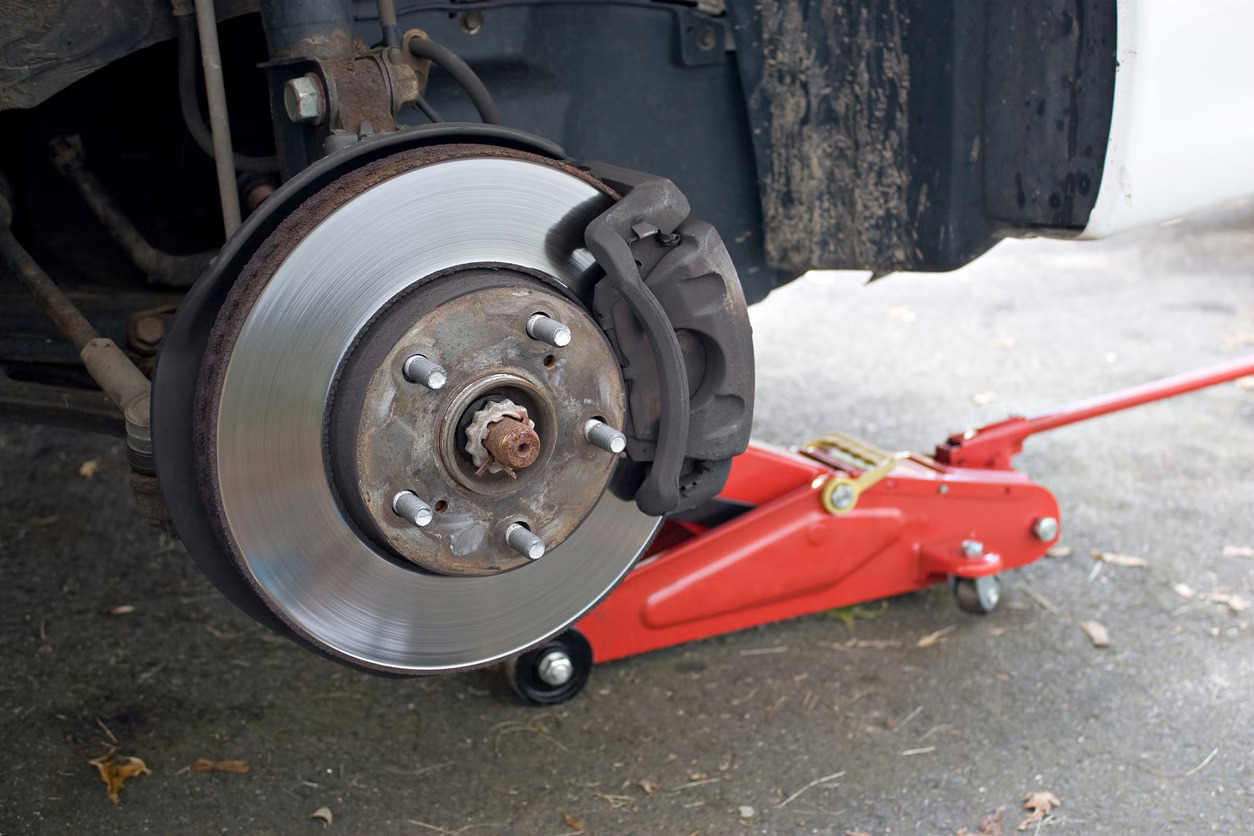

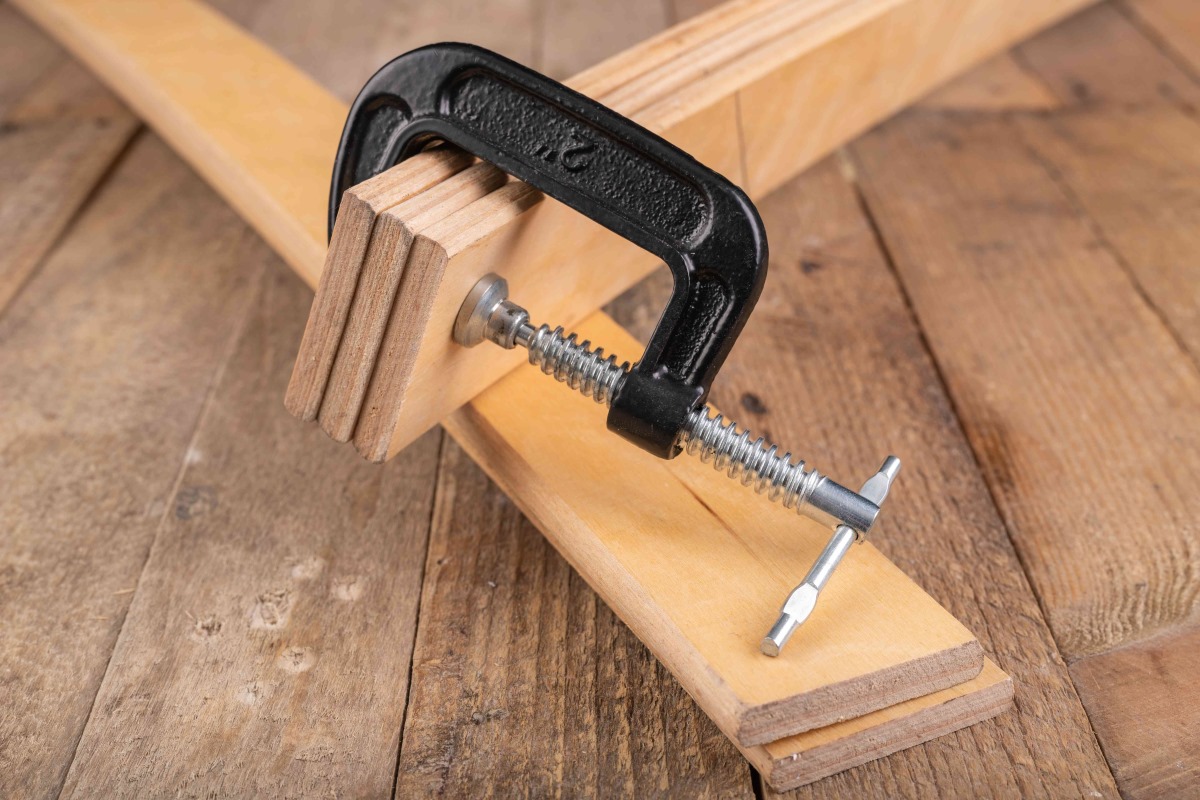

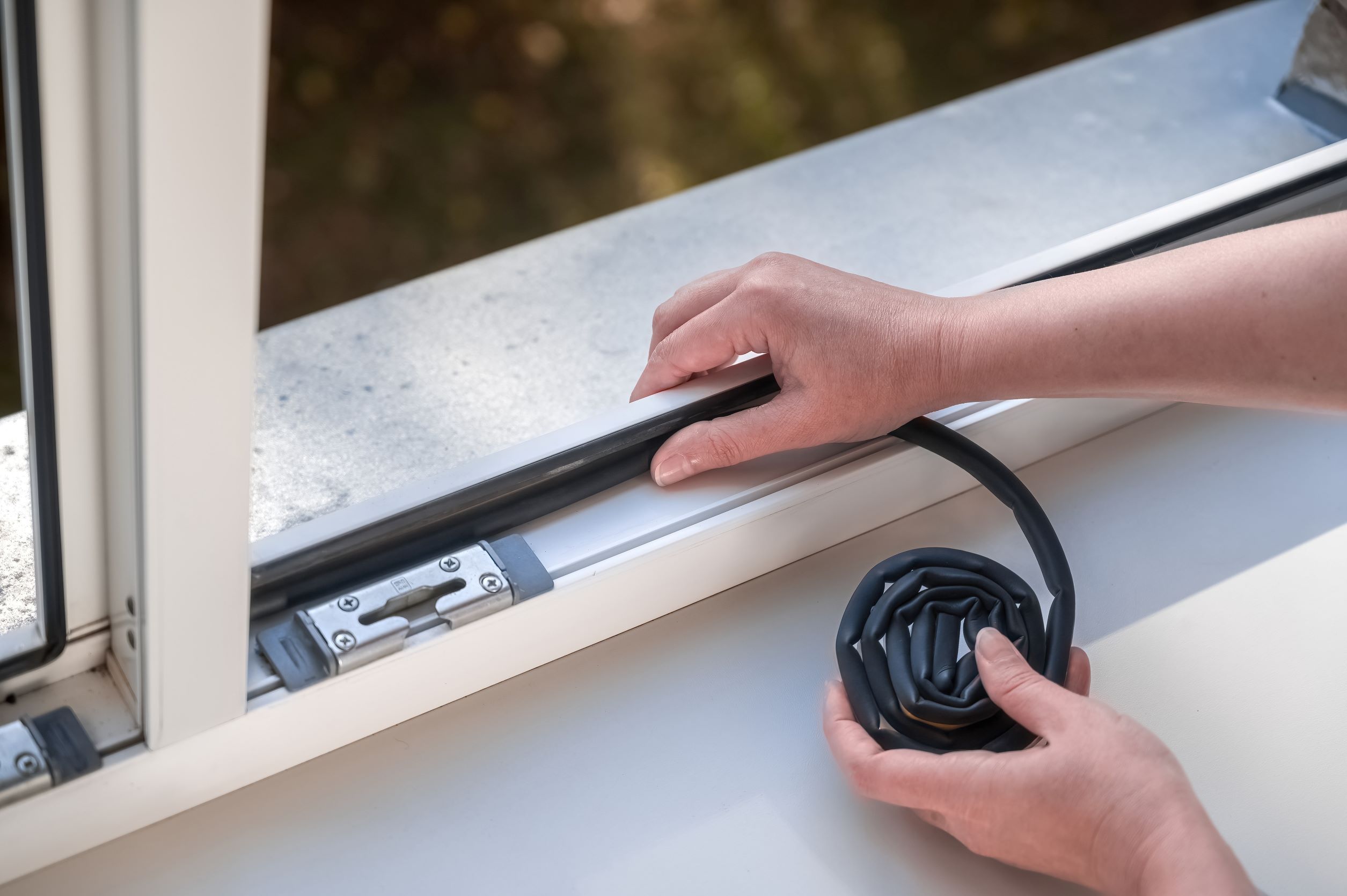
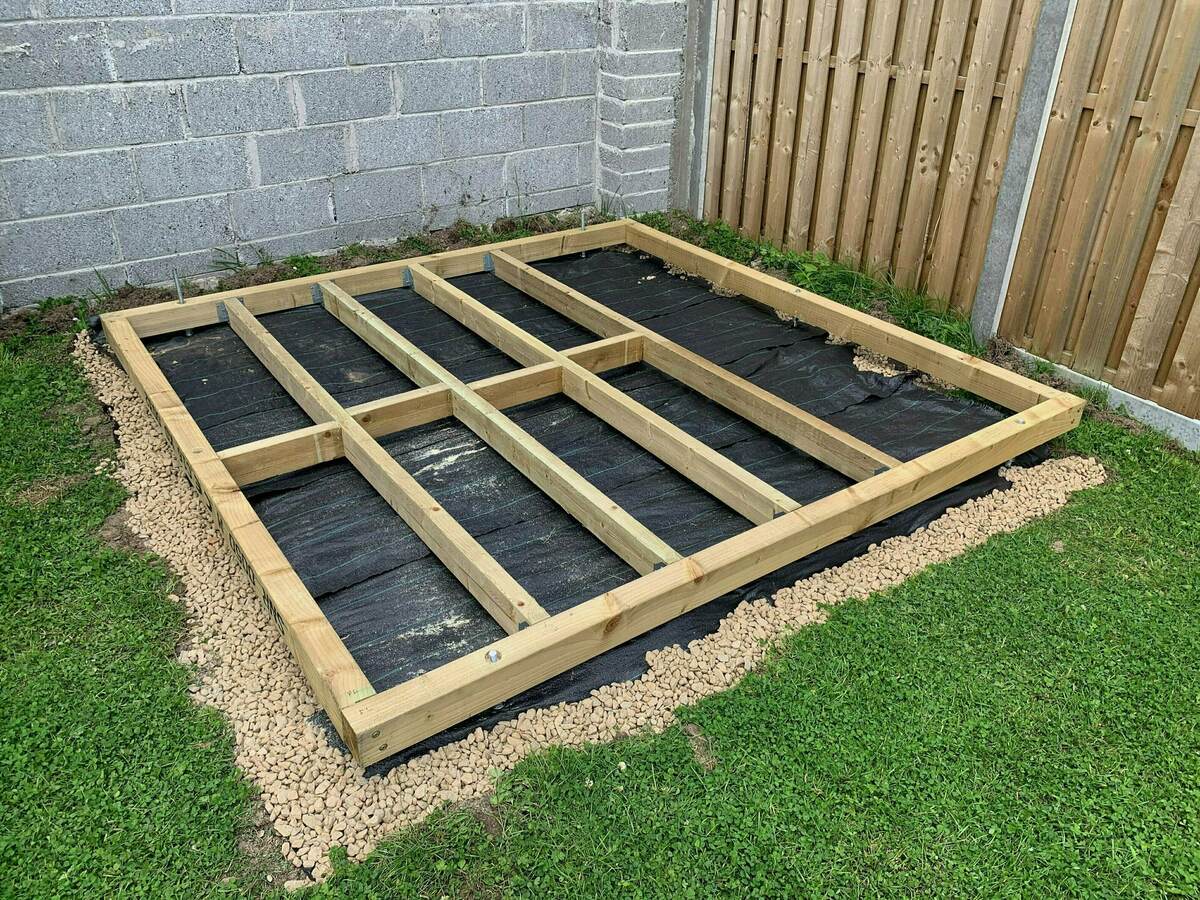

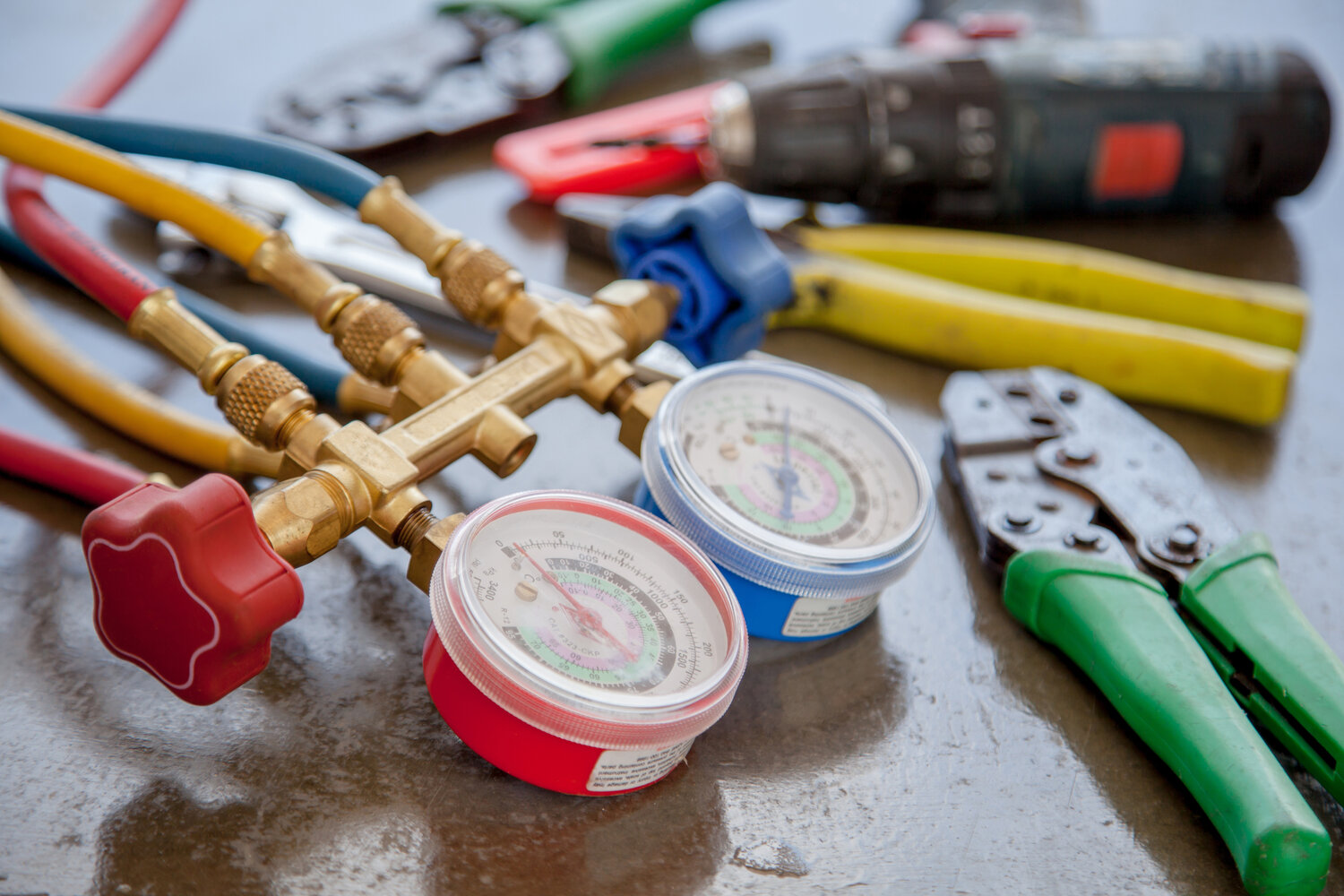

0 thoughts on “What Kind Of State License Do You Need To Do Home Repairs”